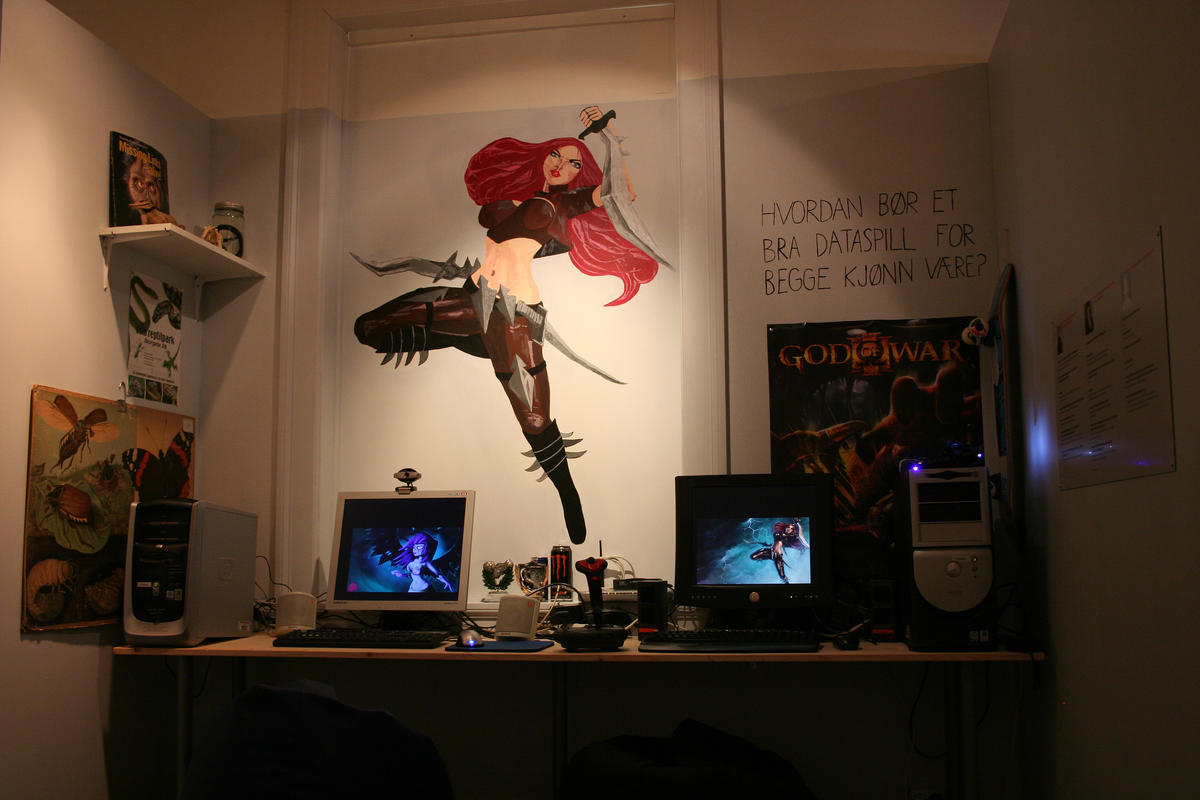Socializing on social media
Social media platforms are important meeting points for young people. Online, everyone can make their opinions heard, whether they are allowed to vote yet or not. In 2013, three of four children and teenagers aged 9-16 used social media weekly. Boys and girls did not always use the same sites, but in the group aged 15.16, Facebook reigned supreme.
Keep your head in the game
A large chunck of the times spent in front of a computer is spent on games. In 2013, girls and boys did not always play the same games, and a lot of younger teenagers played games designed for over-18s. Boys were more active gamers than girls, and it was usually the boys' gaming that worried their parents.
- 1/1
PC-spill er viktig på et gutterom anno 2013 Lisbeth A. Chumak | Kvinnemuseet, Anno
It's a sexualized world
The web is an important place for positive meetings, but also brings with it some less positive meetings. Porn and sexsites are rife. In many of the more popular coputer games, the female characters are incredibly sexualized. Does this affect the attitudes of young girls and boys?
In 2014, Anita Sarkeesian was forced to cancel a talk on depiction of women in games, due to several death threats. The talk was to have been held at the Utah State University, USA, but the police refuced to do firearm searches with pat downs and metal detectors because of Utah's open-carry laws. "Multiple specific threats made stating intent to kill me and feminists at USU. For the record, one threat did claim affiliation with #gamergate," Sarkeesian tweeted. Read more about this controversy here.
According to Norwegian studies before 2013, girls aged 13 or more received a lot more sexual comments online than boys in the same age group. Boys commented more than girls, and were also more often found surfing porn sites than girls.
One inthree of the teenagers aged 13-16 who had watched porn, did not care much about it. A little more than one in three boys enjoyed what they saw, while only one in ten girls liked the porn they found. Two in ten girls found the porn disgusting.
